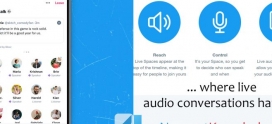
Brand authenticity
Brand authenticity is how a consumer perceives a brand to be faithful to itself. Consumers are intuitive. They do notice and listen to brands. They put their trust in them. But the moment a brand contradicts itself is when they will lose them as forever customers.
Brand authenticity is motivated by caring and responsible motives. Consumers want that guarantee that a brand isn’t trying to be something that it’s not.
Perceived brand authenticity has four main elements:
- Continuity—a brand being faithful to itself
- Credibility—true to its consumers
- Integrity—motivated by caring and responsibility
- Symbolism—support consumers in being true to themselves
Why is brand authenticity important?
In the age of social media, consumers can instantly tell whether a brand is who they say they are. For a brand to be seen as authentic as trustworthy, it needs to be seen as reliable, respectful, and real.
Trust is critical to acquiring and keeping customers. Brand authenticity plays a huge role in helping consumers trust a company. When consumers feel confident that you know what you’re doing and that you are who you say you are, they’re more willing to spend time and money with what you have to offer.
Brand authenticity is important because:
- It helps you stay above the noise. More consumers are utilizing ad blocks, anti-spam solutions, and other defense mechanisms to filter non-genuine messages. If you can be authentic in everything you do and say, then your customers will do your marketing for you through word-of-mouth, social media, email, or any other marketing avenues.
- It builds stronger connections. It’s easy to tell whether someone is being genuine or not online. This works the same with brands. Messages and ideas that don’t try to be anything they’re not resonates more intensely with consumers. This helps boost your brand’s emotional marketing efforts.
- It helps you stand out from your competitors. If you wear your company’s heart on your sleeve, then you’re easier to trust. This generates long-term brand loyalty.
- You’re giving people a reason to care. When you give them something to care about, it makes it harder to break away from it.
How to Increase Your Brand Authority
- Build relationships with customers and prospects. Trust is what builds good relationships with customers. Start by listening to them. Deliver exceptional customer service they’ll always remember. Personalize your communications. Be honest and transparent. Have values and stay true to those values.
- Once you’ve established your values and brand story, be consistent with your branding and messaging. make sure they’re consistent and aligned across all platforms. When you do this effectively, consumers will view your brand as unique, reliable, and dependable. You mean what you say and say what you mean. This increases customer loyalty.
- Start talking! Don’t be afraid to start a conversation with your customers and prospects. You don’t want to come across as unapproachable and stoic, especially if your brand isn’t really like that. Engage on social media. When somebody mentions your brand, respond. Engaging in two-way conversations humanizes your brand. Talk to your customers, not at them.












